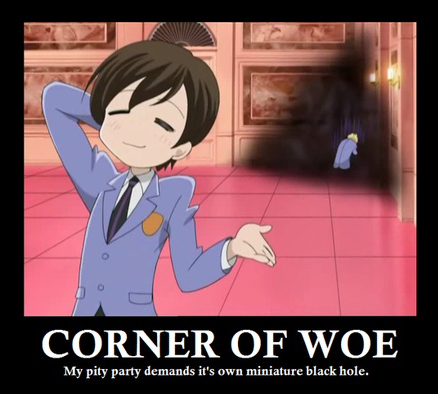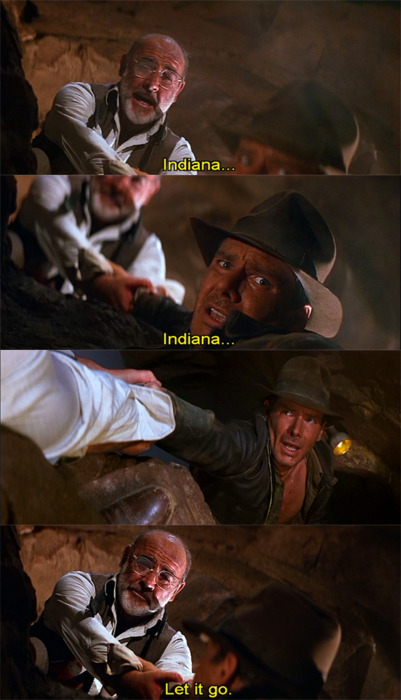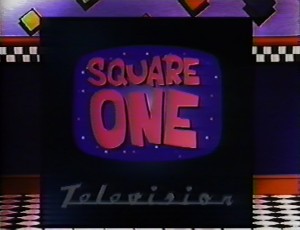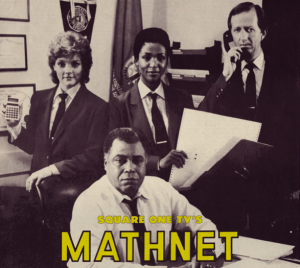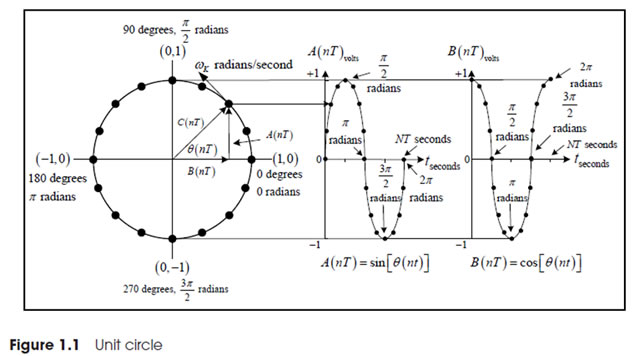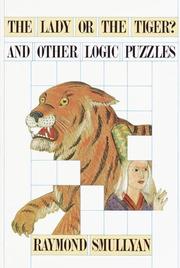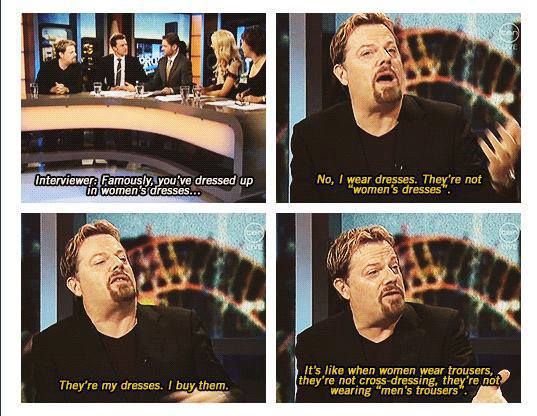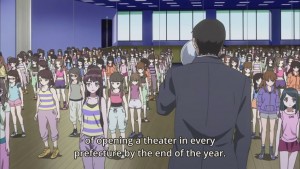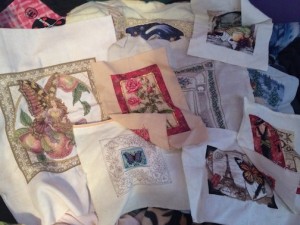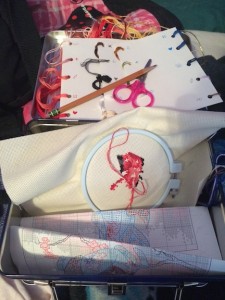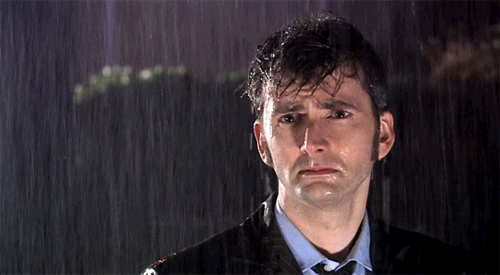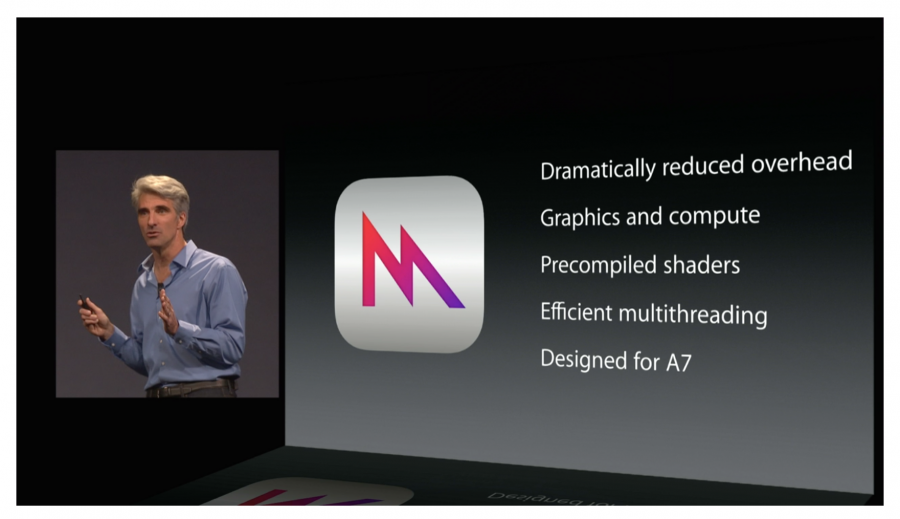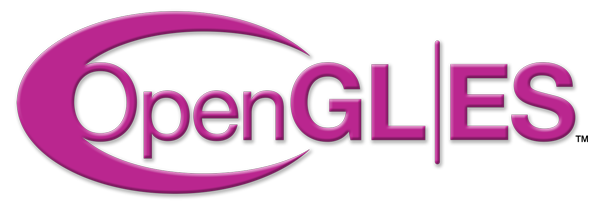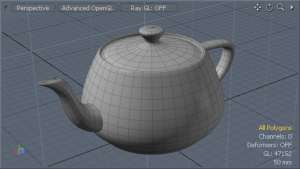While I was attending 360|iDev this past week, I saw a speaker have a bad talk. I saw this speaker do this talk a few months ago and he knocked it out of the park. This time, several things went wrong and the talk went a little off the rails.
My heart went out to this speaker because earlier this month I had my own first encounter with a talk going off the rails.
My Conference Talk Failure
I spoke at CocoaConf Columbus. I was doing two talks. One talk was on GPU Programming and the other talk was on Debugging. I spent the vast majority of my time on the first talk. The subject matter was far more difficult and I was trying to do something rather ambitious with it. I didn’t really give the Debugging talk the love it deserved.
I knew when I woke up the morning of my talk that it was going to go badly. I spent a bunch of time in the morning refactoring it up until the few minutes before the talk began. I was rearranging deck chairs on the Titanic.
When I began the talk, I included a really stupid inside joke that went on for far too long and things just got worse from there. I got flustered and none of my code demos worked properly. I also included way too many of them and all of the demos were based on the same project, so I became confused as to which demo went with which concept.
As I panicked, I spent more and more time looking to my coauthor for help like a kid looking to the teacher for the next line in the school play. I knew I was doing this and I couldn’t help it. I felt like the world was collapsing in on me and I was trapped up there for one terrible hour until I could escape and find a nice corner to cry in.
The Bad News
Here is the bad news. If you are going to be a conference speaker, you are going to have talks that go wrong. It is just going to happen. You are going to have a few that go well, you are going to get complacent and figure you have it all sorted out, or it might even be your first one and you didn’t prepare as much as you should have.
The good news is that you can learn from the experience. Human beings have the unfortunate habit of learning best when we fail at something. Emotional failure stings and it physically hurts us. We learn very quickly not to touch a hot stove because it hurts. We also learn not to go before an audience unprepared because that hurts too.
It is vitally important to not just give up on speaking when you have a bad experience. That is the opportunity you have to learn the most if you can shake off the pain and learn what you did wrong.
Advice
Here is my personal advice for anyone who has either had a bad experience or is just starting out and is worried about having their first bad experience.
- Figure out if your talk is recoverable. I read a memoir by a gymnast who said that when she would get to practice in the morning she would immediately know if it was going to be an on day or an off day the moment she stepped on the balance beam. Sometimes you start the day off on the wrong foot and you just have to keep chugging along. If you can’t recover from your talk, try not to worry about it. The more you try to recover from it, the more panicked you will be, and the worse it will get. You just have to get through it as best you can. Don’t run away. Just finish as best you can.
- If you think you can recover, take a few seconds to close your eyes and gather your thoughts. It might seem like a long time to you, but there is a temporal shift between how you feel time and how your audience feels time. It might seem like an eternity to you, but to them it isn’t that long.
- Try to shake it off. Believe me, you are going to feel terrible. People will try to make you feel better by telling you it wasn’t that bad. They are trying to help. Try to be gracious to the nice people who feel terrible for you and want to make you feel better even though you really want to wallow in your own misery for a while. Let yourself feel bad, but not for too long. Have a good cry, then let it go. Don’t let this spook you out of ever doing this again.
- Learn from what you did wrong. In my case, I didn’t practice my talk enough and my demos were confusing. I will not make those mistakes again. I am currently working on another talk to replace this one and I am trying to be very careful to do the talk that I can do, which might be less ambitious than doing the talk I want and envision. If you are a beginner, you are going to make mistakes and you will know that you could have done better. You will do better next time.
- Remember that everyone in the audience is rooting for you to do well. No one came to your talk hoping to see you crash and burn. Everyone out there is empathizing with you. Most people find public speaking to be terrifying and if you are having a bad talk, you are living their nightmare. There will always be some asshole who will leave you a comment on your card that you weren’t prepared or some other negative thing. It is going to hurt. Fortunately, those people are usually the minority. Try to remember all the nice things people said and all the people who tried to make you feel better when things went wrong. Our community wants you to succeed.
Moving Forward
As painful as my Debugging talk was, I probably learned more from it than I did from the other talks that I did that went well. I know that the speaker I saw at 360|iDev is going to take that talk and refactor the hell out of it and the next time he does it he will knock it out of the park.
We learn more from our failures than we do from our successes. Failure is painful, but necessary for us to grow and learn and to do better. We are all going to fail at some point. There is nothing to be ashamed of. Just grow, learn, and do awesome stuff.
